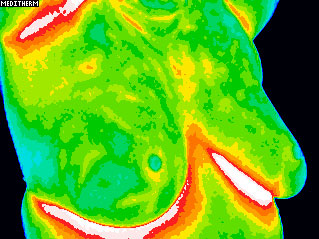
Below is an excerpt from my book, Practical Fertility.
Thyroid Questions and Answers
So far we’ve talked about the pituitary, ovaries, fallopian tubes, cervix and of course the UTERUS in regards to fertility, but what about that unsung hero, the thyroid? The thyroid gland sits in the front of your throat. It controls your whole body’s metabolism—the metabolic activity of EVERY CELL! Because of this, thyroid disease affects every organ in the body, including your reproductive organs.
Like the ovaries, the thyroid is controlled by the pituitary and hypothalamus. When levels of thyroid hormone in the body drop, the pituitary sends a message to the thyroid via thyroid stimulating hormone (TSH) to make more thyroid hormone, thyroxine (T4).. Like all of the hormonal pathways in the body this is complicated!!! The plot thickens as T4 has to be converted into a more active hormone, triiodothyronine (T3) to affect your cells and actually get anything accomplished. This conversion of T4 to T3 happens all over the body but especially in the liver. So, having optimal liver function is imperative when talking about thyroid health.
The endocrine system is one big balancing act so it stands to reason that if it is possible to have too little of a hormone it is also possible to have too much. You can have too much estrogen, too much FSH, not enough progesterone, etc. Thyroid hormones are no exception. Having too little thyroid hormone causes hypothyroidism, while having too much results in hyperthyroidism. Both hypothyroidism and hyperthyroidism can cause unpleasant symptoms and abnormal basal body temperature graphs that can tip you off to the fact that something is not quite right. However, both of these conditions can also be totally asymptomatic which is why fertility specialists often include thyroid tests in an initial fertility workup.
Hypothyroid
- Weight gain
- Tendency to be cold
- High cholesterol
- Hair loss
- Depression
- Dry skin
- Memory and Concentration difficulties
- Constipation
- Menstrual irregularities such as: unpredictable cycles, heavy bleeding and a history of miscarriage or stillbirths.
- Basal body temperature readings will be low; you may not even register on the chart. You may not show the peaks and valleys showing of normal hormonal functioning and ovulation.
Hyperthyroid
- Weight loss
- Anxiety
- Insomnia
- Restlessness
- Shaking
- Thirst
- Exopthalmos (an eye condition resulting in bulging and irritation)
- Shortness of breath
- Basal body temperatures will be chronically elevated. Temperature shifts showing ovulation may also be absent.
While hypothyroidism and hyperthyroidism are opposite sides of the spectrum, both of these conditions may present with fatigue and muscle pain or weakness.
Impact on fertility
Now for the part you have been waiting for. Yes, this is all very interesting information, but how is taking care of your thyroid going to help you GET PREGNANT!?
Both hyper and hypothyroidism can result in anovulation. Of course if you are not ovulating, you won’t be getting pregnant. Plus, if you do get pregnant and have one of these conditions the baby could suffer, becoming either hypothyroid or hyperthyroid itself. Hypothyroidism in early pregnancy can negatively affect the developing baby’s brain and nervous system development. On the other hand, hyperthyroidism can cause toxicity to the baby, or if the mother’s thyroid condition is caused by an autoimmune problem the mother could be hyperthyroid while the baby is hypothyroid!
What should you do?
First adopt lifestyle and dietary habits that support health thyroid function. As we discussed earlier, pesticides have components that alter endocrine function as do certain, chemicals and even some drugs such as aspirin can disrupt iodine levels in the body. Fertility enhancing diets help regulate endocrine function thus also help thyroid function avoid chemical pollutants in cleaning products, don’t buy a new car, don’t go to the public swimming pool every day (chlorine), don’t use bleach, avoid plastic water bottles or cooking in plastic containers, and avoid foods with oleic acid (margarine is a common source of these). Eat a balanced diet and take your prenatal vitamins. The body needs certain nutrients such as iodine, vitamin E, A zinc, copper and selenium to manufacture and utilize thyroid hormone properly. Supplementing your diet with sea vegetables such as kelp and hijiki with provide you with good quality iodine.
In addition you want to avoid foods that can keep the thyroid from using iodine (goiterogenic) such as uncooked turnips, cabbage, mustard greens, broccoli, pine nuts, peanuts, millet and soy. These foods are not BAD for you, but uncooked they can contribute to an underactive thyroid. So, keep eating these foods just cook them first (the Chinese believe cooked foods are better for you anyways) and individuals with confirmed low thyroid hormone should avoid daily soy intake.
So, if you have hyperthyroidism you should eat lots of margarine, right? Not exactly. In general you should avoid iodine rich foods such as dairy and flour products as these can contain high amounts of iodine.
Because thyroid disease can easily go undiagnosed and can have serious effects on fertility and a developing baby, if you suspect that you have a thyroid problem, either because of your BBT or you have more than 3 symptoms of thyroid disturbance contact your primary healthcare provider and request a thyroid test. An initial screening test is an inexpensive simple blood test that measures the amount of TSH. Depending on your symptoms your physician may also order tests that directly measure levels of thyroid hormones and thyroid antibodies. There is an art and science to interpreting these tests, as sometimes tests will be borderline rather than obviously conclusive. The diet and lifestyle changes previously discussed several Western herbs as well as acupuncture and Chinese herbal formulas, nutritional supplements and thyroid hormone may be used to normalize your thyroid and improve fertility. A well versed holistic physician well versed in fertility should be able to guide you in choosing the best treatment for you.





